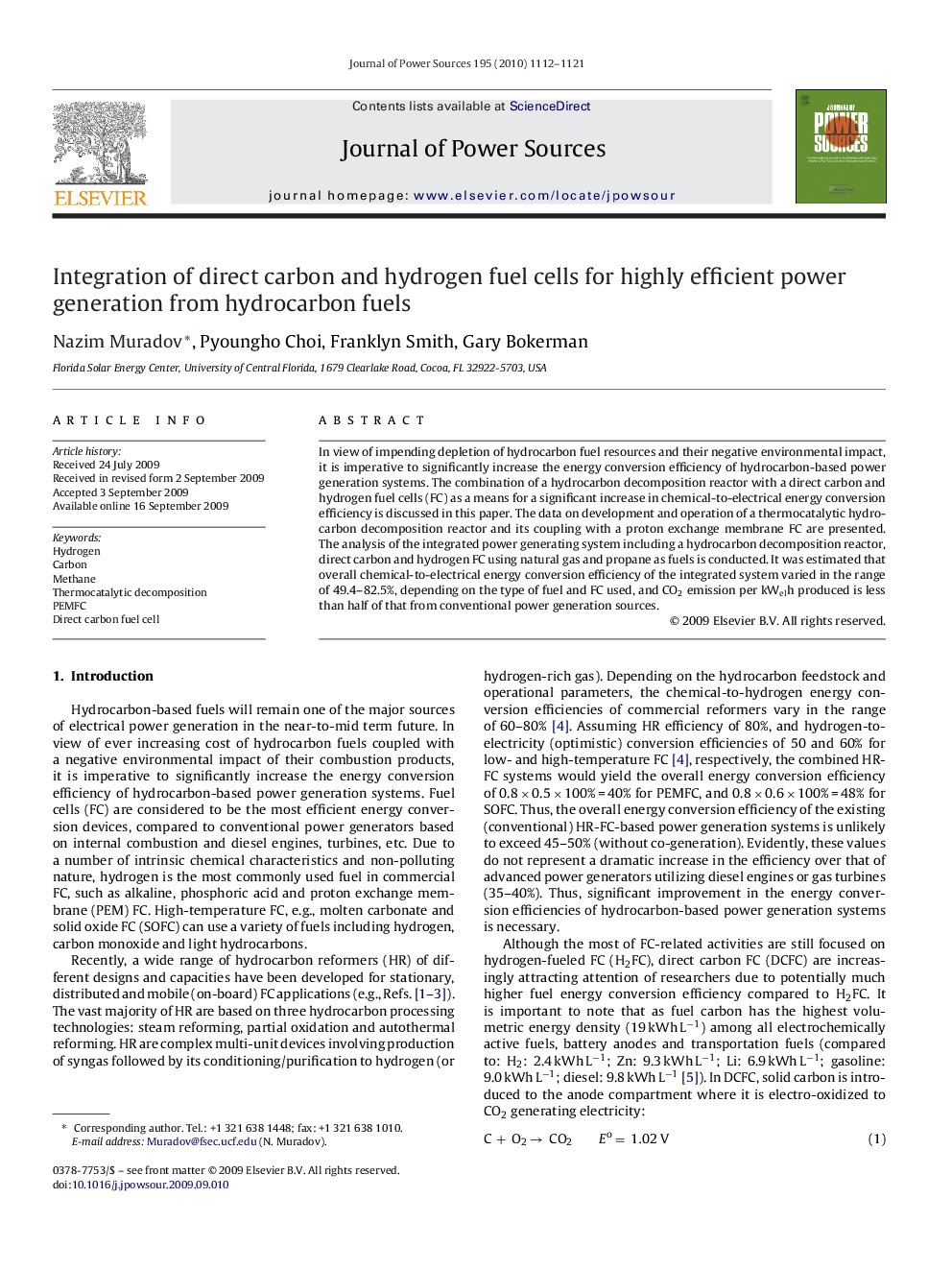| Article ID | Journal | Published Year | Pages | File Type |
|---|---|---|---|---|
| 1285108 | Journal of Power Sources | 2010 | 10 Pages |
In view of impending depletion of hydrocarbon fuel resources and their negative environmental impact, it is imperative to significantly increase the energy conversion efficiency of hydrocarbon-based power generation systems. The combination of a hydrocarbon decomposition reactor with a direct carbon and hydrogen fuel cells (FC) as a means for a significant increase in chemical-to-electrical energy conversion efficiency is discussed in this paper. The data on development and operation of a thermocatalytic hydrocarbon decomposition reactor and its coupling with a proton exchange membrane FC are presented. The analysis of the integrated power generating system including a hydrocarbon decomposition reactor, direct carbon and hydrogen FC using natural gas and propane as fuels is conducted. It was estimated that overall chemical-to-electrical energy conversion efficiency of the integrated system varied in the range of 49.4–82.5%, depending on the type of fuel and FC used, and CO2 emission per kWelh produced is less than half of that from conventional power generation sources.
